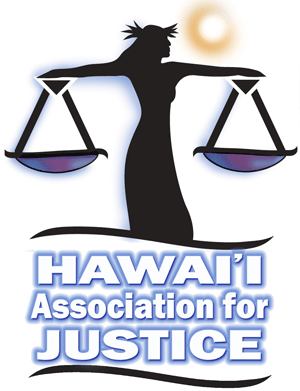


One Of Hawaii's
Top Auto Accident
Attorneys
Worked for U.S. Air Force JAG
Millions obtained for our Clients' Car Accident Injuries
No Fees Until We Win Your Auto Accident Case
Lowest Fees Guaranteed







Hawaii Electric Bicycle and Electric Scooter Accident Injury Lawyer
-
As a car accident lawyer in Honolulu, Hawaii, I understand the unique risks and challenges associated with electric bike and electric scooter accidents. These devices, while convenient and eco-friendly, can lead to serious injuries due to a lack of protection and frequent interactions with motor vehicles. My role is to guide victims through the legal process to ensure they receive fair compensation for their injuries.
-
One of the first ways I assist clients is by helping them understand their rights. Many people assume they have limited legal recourse when involved in a scooter or e-bike accident, especially if they're unsure who was at fault.
-
Determining liability is a crucial step in any Hawaii accident injury case. I conduct a thorough investigation that may include interviewing witnesses and analyzing police reports. This ensures a strong foundation for your Honolulu injury claim.
-
Insurance coverage for electric bike and scooter accidents can be confusing. In Hawaii, not all insurance policies automatically cover these incidents. I assist clients in navigating insurance claims, ensuring they pursue all available avenues, whether through auto insurance or the at-fault party’s policy.
-
Medical expenses can quickly pile up after an accident on Oahu and throughout Hawaii. I work closely with clients to ensure that all current and future medical costs, including physical therapy and surgery, are accurately accounted for in their claims. I also collaborate with medical professionals to document the full extent of injuries.
-
Pain and suffering, emotional distress, and lost income are also recoverable damages. I help clients calculate these non-economic losses using established legal methods. My goal is to ensure the full scope of harm suffered is recognized in the settlement.
-
Hawaii’s tourism industry means many scooter and e-bike accidents involve visitors. I help both residents and tourists understand their rights and pursue compensation, even if they reside out of state.
-
I am also experienced in negotiating with rental companies and their insurers. Many scooter and e-bike accidents involve rented devices, and the fine print in rental agreements can be complex.
-
Above all, I offer compassionate and committed advocacy for my clients. Recovering from an accident in Honolulu and throughout Hawaii can be overwhelming, and my clients deserve not only legal expertise but also support and guidance throughout the process. My aim is to alleviate stress so they can focus on healing.
Electric Bike and Electric Scooter Safety in Hawaii
-
Safety is a growing concern as electric bikes and scooters become more common on Hawaii’s roads. With their increasing popularity among both residents and tourists, it's essential to understand and promote safe practices to reduce injuries and fatalities.
-
One of the primary safety challenges is the speed of these vehicles. E-bikes and e-scooters can reach speeds of up to 20–28 mph, which is fast enough to cause significant injury in a collision. Riders should always operate their devices at speeds appropriate for their surroundings.
-
Helmets are one of the most effective ways to reduce injury in an accident. In Hawaii, helmet use is not mandatory for all adults, but it is highly recommended. Wearing a certified helmet can dramatically decrease the risk of head trauma.
-
Visibility is another key factor. Riders should wear bright clothing, especially at night or during poor weather, and use front and rear lights. Being visible to cars, pedestrians, and other riders can prevent many accidents.
-
Defensive riding is crucial. Electric bike and scooter users must assume that drivers may not see them, particularly at intersections or when merging. Staying alert and anticipating drivers’ actions helps avoid dangerous situations.
-
Sidewalk riding is often discouraged or prohibited in busy areas. Riders should use bike lanes where available, and when they must share roads with cars, they should ride with the flow of traffic and obey all traffic signals.
-
Tourists unfamiliar with local traffic laws and conditions are at higher risk. Rental companies should provide safety instructions, and visitors should take time to understand basic rules and routes before riding.
-
Maintenance of e-bikes and scooters is vital. Worn brakes, underinflated tires, or malfunctioning throttles can lead to crashes. Riders and rental companies alike have a responsibility to ensure the devices are in good working order before use.
-
Education campaigns are helping raise awareness about safe riding. Hawaii’s Department of Transportation and local advocacy groups have been promoting bike and scooter safety through outreach, school programs, and signage.
-
As these vehicles become a permanent fixture in urban transportation, collaboration between government agencies, communities, and private companies will be essential to create infrastructure and policies that promote safety and accessibility for all.
Electric Bike and Electric Scooter Laws in Hawaii
-
In Hawaii, electric bikes and scooters fall under distinct legal classifications. E-bikes are generally treated more like bicycles, while electric scooters may be classified as “low-speed electric vehicles” depending on their top speed and design.
-
For electric bikes, Hawaii follows a three-class system similar to other states. Class 1 and 2 e-bikes are allowed on bike paths and sidewalks, while Class 3 e-bikes (which can go up to 28 mph) may be restricted to road use. Knowing your e-bike’s classification is critical.
-
Riders under 15 years old are not allowed to operate e-bikes. Additionally, anyone operating a Class 3 e-bike must wear a helmet, regardless of age. These regulations are designed to enhance rider safety.
-
Electric scooters are subject to more specific laws. As of 2021, riders must be at least 15 years old and possess a valid driver’s license or instruction permit. Scooters must also be registered with the county DMV, similar to a moped.
-
Operating an electric scooter on sidewalks is prohibited in many jurisdictions, including Honolulu. Riders must use bike lanes when available or ride on the road with traffic. Violations can result in fines or impoundment of the device.
-
DUI laws apply to all motorized vehicles, including electric scooters and bikes. Riding while intoxicated can lead to arrest and prosecution, just as it would in a car. This is a crucial legal point many riders overlook.
-
Scooter and e-bike rentals are subject to county regulation. Rental companies must ensure that their devices are registered, maintained, and accompanied by safety instructions. Riders are also required to acknowledge and accept rental terms.
-
Hawaii law requires that all electric scooters be equipped with functioning lights, reflectors, and brakes. Riding at night without proper lighting is both dangerous and illegal. Riders should inspect devices before use.
-
Liability in accidents involving these vehicles depends on adherence to traffic laws. If a rider is injured while obeying the law and another party is at fault—such as a negligent driver—they are typically eligible to seek damages.
-
These laws are evolving as electric mobility becomes more common. Policymakers in Hawaii are actively reviewing and updating regulations to balance public safety with the growing demand for alternative transportation options.
